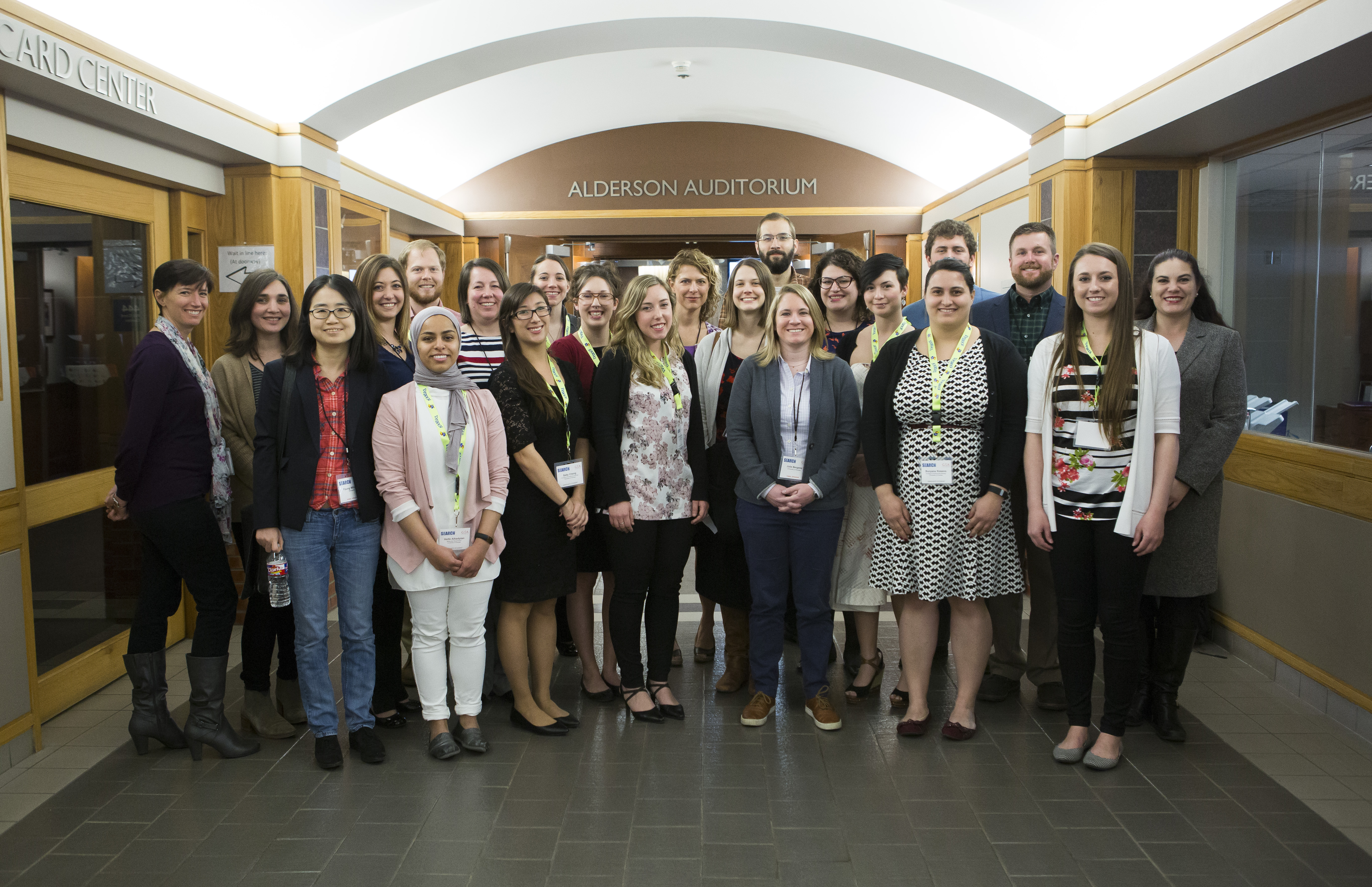The “Advocating for Science” symposium and workshop is taking place at MIT September 16-17, 2016, to enable junior scientists to advocate for science. The purpose of the meeting is to give an opportunity to those with a passion for advocating for science to develop their advocacy skills, meet like-minded junior scientists and develop focused efforts together to effect positive change.
To try to extend this meeting beyond the Boston area, we have just put out an application call for travel scholarships for attendees from further afield. Our first travel award attendee is Alex Erwin, a PhD Candidate in Ecology and Evolutionary Biology at the University of Kansas.
Alex received travel support from the Kansas City Area Life Sciences Institute. President and CEO, Wayne O. Carter, told us, “We are very pleased to support a travel award for the Advocating for Science Symposium. We must be able to communicate the value of science to help individuals and groups appreciate the importance scientific research for our health and the health and future prosperity of our world”.
We talked to Alex about what she has been up to and what she hopes to get from the symposium.
Tell us a little about your career path so far and what you are currently working on.
I received a BS in microbiology at Missouri State University. I loved genetics and was grateful for the opportunity to work in my genetics professor’s grapevine research lab as an undergraduate. For my first project there, I identified powdery mildew disease resistant grapes which had inherited two resistance genes through the use of genetic markers. This work was rooted in classical genetics. However, when I learned about the not-so-Mendelian field of epigenetics, I was captivated. I applied for funding through Missouri State to do an independent research project investigating how presumed epigenetic regulators of longevity in mammals affected stress resistance in grapevine.
During that time, I was also exposed to my first collaborative event with the community. Our lab became fascinated with the story of a local Missouri grape grape breeder, Hermann Jaeger, who saved the European grape industry from collapse during a pest epidemic in the 1800s. In an interdisciplinary effort, we collaborated with artists, historians, and community members to make an informative exhibit to display at the local science center. I loved interacting with the community in this way and the opportunity to translate more technical concepts into meaningful issues that members of the community could relate to.
As I neared the end of undergraduate training, I realized that staying in the university setting would enable me to not only pursue a deeper understanding of the science that I loved, but would also provide me with more opportunities to interact with the community. I was excited to find a perfect fit in a Drosophila lab at the University of Kansas that bridges molecular and evolutionary biology. Broadly, I have been studying epigenetic properties of the germline. More specifically, I have been studying the small RNA system that defends against transposable element movement and how that defense system can inadvertently affect host genes. I am also currently incorporating my previous interests in longevity to investigate epigenetic changes in the germline during aging.
How did you get interested in advocacy work/science policy?
My interest in advocacy and policy didn’t start as a conscious effort, but I’m beginning to realize that in small ways, it has been in the background for a while.
I have always been cognizant of the gaps in preparation I faced in the various professional stages of my life and I have been continually making efforts to pass on what I learned or wish I had done differently to the younger academic generation. The first time I did this was when I was compelled to visit my high school as an undergraduate to talk to all of the science classes there about what university research labs were, how to get research experience, and how valuable that experience would be. Later on, after I started graduate school, I was caught off guard by how important computation skills were. So I initiated and have taught a programming workshop for NSF REU students for several summers so they have some initial exposure to the kinds of skills they might need in their graduate career and how to develop them.
The moment when I became more aware of actively engaging in advocacy and policy was when Dr. Beth Ruedi, the Director of Education and Career Development for the Genetics Society of America (GSA), visited our campus. She gave a great talk on professional development and discussed the need for career resources in graduate programs (something myself and fellow students had been stressing over) and then she told us that we, as graduate students, could actually create the resources we needed. Specifically, the GSA had started Trainee-Organized Symposia grants which could be used by GSA student members to organize symposia or workshops.
This was a pivotal moment for me. Once I realized that there was a path for us to create this very important resource, I became committed to making it happen. So our Graduate Student Organization (GSO) in Ecology and Evolutionary Biology joined forces with the Molecular Biosciences GSO and through the very dedicated work of 11 organizing members, we created the first ever science careers symposium at our university.
What experiences have you had in policy so far and how have they shaped/changed your scientific interests/aspirations?
Being an organizer of the SEARCH symposium was a game changer for me. I remember initially being hesitant to reach out to administrators and community members for support. However, I immediately discovered that not only was there interest and support at the campus level, but also within the community.
Our symposia ended up having an amazing patchwork of funding from seven different offices/organizations on campus, The Ewing Marion Kauffman Foundation – a private foundation committed to education and entrepreneurship in the Kansas City area, and the GSA Trainee-Organized Symposia grant. We had over 100 students attend from multiple campuses in the area and several have since conveyed interest in collaborations for future professional development symposia.
Participating in this event made me realize that I want to continue creating change in the scientific enterprise. Additionally, one of our keynote speakers was Dr. Meredith Drosback (pictured below), the Assistant Director for Education and Physical Sciences at the White House Office of Science and Technology Policy. Her talk and my subsequent interactions with her was my first in-depth look at science policy as a career choice.

What are your future goals?
One of my more immediate goals is to bring awareness to the still prevalent gap of women in leadership positions. I hope to do this through a collaboration with undergrads, graduate students, administrators and community members next spring. I also want to be a more active voice on campus by participating in the graduate student advisory board and being a graduate student representative in the KU Student Senate. Another goal I have is to gain some science policy experience in government, either at the state or federal level. At the career level, I hope to find a position where I can continue to advocate for and creating positive change in the sciences.
What do you hope to get out of coming to the meeting in Boston?
I think I am most eager to learn about how to maintain change once it has been initiated. I am also interested in learning about the avenues by which scientists can make changes at the government level. I’m getting a better idea of how to do it at the university level but don’t know much outside of that realm. Lastly, I want to learn how to inspire others to advocate for change. I plan to host a mini meeting like this once I come back to Kansas so our local graduate students and postdocs can also have access to the resources that will be presented at the meeting.
Thanks to KCALSI
We are very grateful to Wayne Carter and the Kansas City Area Life Sciences Institute for assisting Alex to come and join us in Boston in September, and look forward to trying to help her achieve her goals.






Trackbacks/Pingbacks